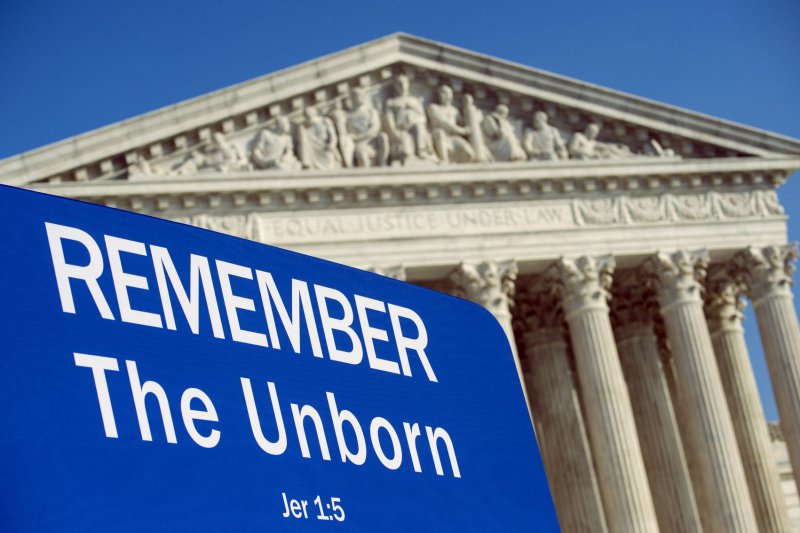Protesters rally in in front of the U.S. Supreme Court on January 18 during the March for Life in Washington, D.C. File Photo by Kevin Dietsch/UPI |
License Photo
May 7 (UPI) -- Georgia Gov. Brian Kemp on Tuesday signed into law one of the United States' strictest abortion laws, which bars most pregnancy terminations when a fetal heartbeat can be heard.
The new law means abortions are illegal after about six weeks of pregnancy. Opponents argue that most women don't even know they're pregnant that early. The law supersedes a previous Georgia law that banned abortions after 20 weeks.
"I am signing House Bill 481 this morning to ensure all Georgians have the opportunity to live, grow, learn and prosper in our great state," Kemp said before signing the bill Tuesday. "[It] will allow precious babies to grow up and realize their full, God-given potential."
"Georgia is a state that values life," he added. "We protect the innocent, we champion the vulnerable, west and up and speak for those unable to speak for themselves. ... Our job is to do what is right, not what is easy."
Similar "heartbeat" laws exist in Kentucky, Mississippi and Ohio and potential laws have been introduced in 12 other states. Georgia's bill, unlike most of the others, defines the fetus as a "natural person" and a "human being" once a heartbeat is detected.
Supporters of the new laws, which have increased since conservative Supreme Court Justice Brett Kavanaugh was confirmed last year, hope Georgia's will reach the U.S. Supreme Court so it can overturn the landmark 1973 ruling that made abortion legal nationwide.
"This has been one of the most prolific legislative seasons that I've seen in many, many years in the abortion debate," Sue Swayze Liebel of the abortion-opponent Susan B. Anthony List told The Hill.
"I think the Kavanaugh hearing and the potential may be for one more seat on the court is putting states on notice that, likely, Roe may be overturned," she added.
The other laws on the books, however, have been stopped in federal court. In March, U.S. District Judge David Hale suspended indefinitely two Kentucky abortion laws while considering a lawsuit filed by the American Civil Liberties Union that argues the laws are unconstitutional. Judges also have struck down laws in Iowa and North Dakota.















